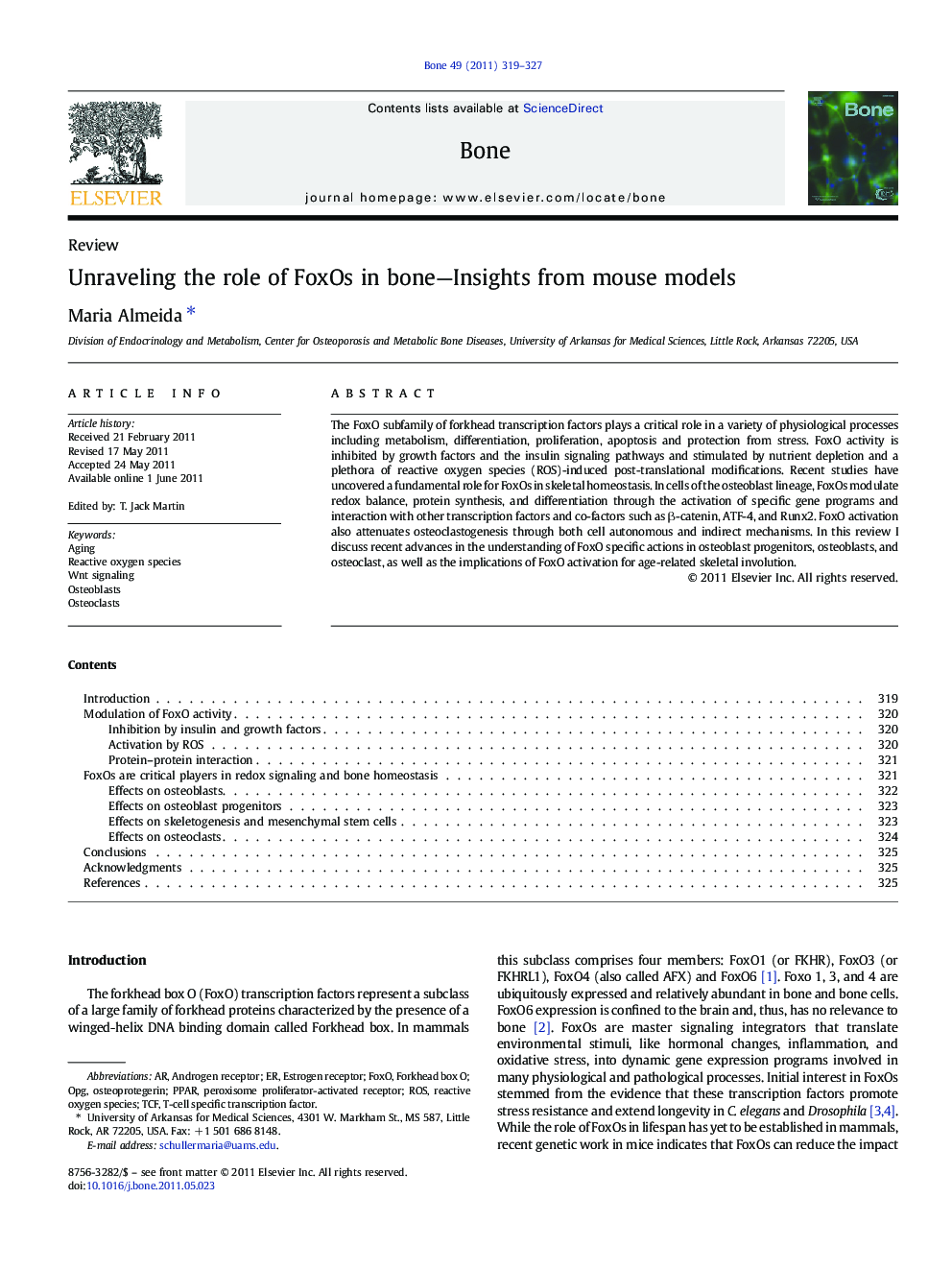| Article ID | Journal | Published Year | Pages | File Type |
|---|---|---|---|---|
| 5891793 | Bone | 2011 | 9 Pages |
The FoxO subfamily of forkhead transcription factors plays a critical role in a variety of physiological processes including metabolism, differentiation, proliferation, apoptosis and protection from stress. FoxO activity is inhibited by growth factors and the insulin signaling pathways and stimulated by nutrient depletion and a plethora of reactive oxygen species (ROS)-induced post-translational modifications. Recent studies have uncovered a fundamental role for FoxOs in skeletal homeostasis. In cells of the osteoblast lineage, FoxOs modulate redox balance, protein synthesis, and differentiation through the activation of specific gene programs and interaction with other transcription factors and co-factors such as β-catenin, ATF-4, and Runx2. FoxO activation also attenuates osteoclastogenesis through both cell autonomous and indirect mechanisms. In this review I discuss recent advances in the understanding of FoxO specific actions in osteoblast progenitors, osteoblasts, and osteoclast, as well as the implications of FoxO activation for age-related skeletal involution.
⺠FoxO transcription factors are critical players in bone homeostasis. ⺠In mature osteoblast FoxO1 and FoxO3 attenuate oxidative stress and increase bone mass. ⺠In osteoblast progenitors FoxOs divert β-catenin from TCF- to FoxO-mediated transcription and decrease osteoblastogenesis. ⺠FoxOs attenuate osteoclast generation via indirect and cell autonomous mechanisms.
